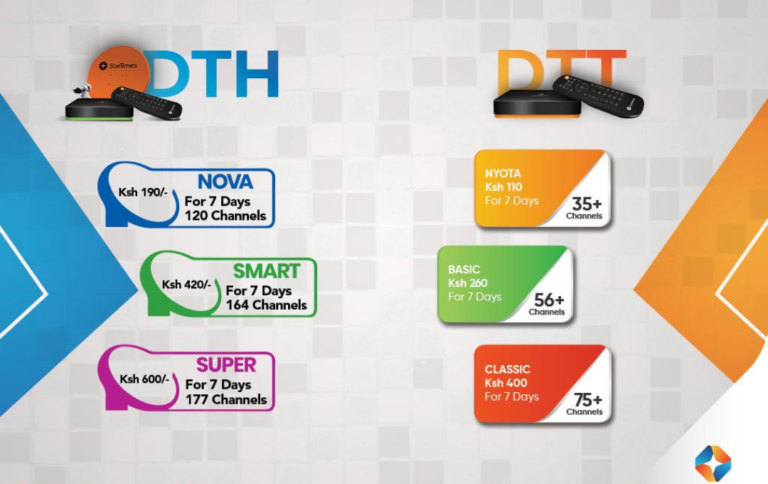The Power of Networking Marketing: What is it?

Networking marketing, also known as multi-level marketing (MLM) or direct selling, has been a popular business model for decades. It offers individuals the opportunity to build their own businesses by leveraging the power of personal connections and a network of distributors. In this comprehensive article, we’ll explore the ins and networking marketing and uncover the strategies that can lead to success.
Read: Largest Network Marketing Companies: A Guide to Success
Networking Marketing
Networking marketing is a unique business model that relies on the distribution of products or services through a network of independent distributors or representatives. These individuals, often referred to as “distributors” or “consultants,” earn commissions not only from their own sales but also from the sales generated by the people they recruit into the network.
The key to success in networking marketing lies in building a strong and engaged network of distributors. By recruiting and training others to sell the products or services, distributors can leverage the efforts of their team to generate a steady stream of income.
The Benefits of Networking Marketing
The benefits of networking marketing include:
1. Low Start-up Costs: Network marketing businesses typically have low start-up costs compared to other entrepreneurial ventures, making it more accessible to individuals with limited financial resources.
2. High Demand: Network marketing products are often in high demand, ensuring a steady stream of potential customers and a stable business model.
3. Free Mentorship and Training: Network marketing companies provide comprehensive training and mentorship to help new distributors learn the ropes and succeed in the business.
4. Price Stability: Network marketing products are often unique and distributed through a network of marketers, which helps regulate product prices and maintain stability.
5. High-profit Margin: Network marketing businesses can enjoy high-profit margins, especially as the business grows and passive income streams develop.
6. Global Nature: Network marketing businesses can operate globally, allowing for a diverse customer base and opportunities for growth.
7. Minimal Effort: Once the initial effort of establishing the business is done, the cash flow can be continuous, with passive income generated from the sales of others in your network.
8. Time Freedom: Network marketing businesses offer the flexibility to work from anywhere, at any time, allowing for a better work-life balance and personal freedom.
9. Enhanced Business Growth: Network marketing provides a tested and sure method of building a successful business enterprise, with opportunities for accelerated growth and financial freedom.
10. Financial Freedom: Network marketing businesses can provide a steady income stream, allowing individuals to achieve financial freedom and a sense of security.
11. Personal Development: Network marketing diversifies individuals in skills such as public speaking, coaching, and mentoring, which can be valuable in personal and professional life.
12. Building Relationships: Network marketing allows individuals to build relationships with people from all over the world, leading to new business opportunities and lifelong friendships.
13. Tax Benefits: Network marketing businesses can offer tax benefits, such as writing off capital investments and expenses.
14. Constant Learning: Network marketing businesses require continuous learning and adaptation, providing a priceless education and opportunities for personal growth.
15. Flexibility and Autonomy: Network marketing businesses offer the flexibility to work on your own terms, making it an attractive option for those seeking autonomy and control over their careers.
Strategies for Success in Networking Marketing
To succeed in networking marketing, it’s essential to develop a comprehensive strategy that encompasses several key elements:
1. Product Knowledge and Passion
Successful distributors in networking marketing are those who are passionate about the products or services they are promoting. Developing a deep understanding of the product’s features, benefits, and unique selling points is crucial to effectively communicating the value to potential customers and recruits.
2. Effective Networking and Relationship Building
The heart of networking marketing lies in building strong relationships with potential customers and recruits. Distributors should focus on developing genuine connections, providing value, and fostering a sense of community within their network.
3. Consistent and Targeted Prospecting
Consistent prospecting is key to building a successful networking marketing business. Distributors should identify and target potential customers and recruits who align with the company’s products or services and have a genuine interest in the opportunity.
4. Effective Training and Support
Providing comprehensive training and ongoing support to your network of distributors is essential for their success. This includes training on sales techniques, product knowledge, and business-building strategies.
5. Leveraging Digital Platforms
In today’s digital landscape, networking marketing businesses can leverage various online platforms to reach a wider audience, generate leads, and build their network. This may include social media, email marketing, and online advertising.
The Importance of Mindset and Persistence
Succeeding in networking marketing requires more than just implementing the right strategies. It also requires a strong mindset and a willingness to persist through challenges.
Distributors must be prepared to face rejection, overcome obstacles, and maintain a positive and resilient attitude. Developing a growth mindset, embracing continuous learning, and staying motivated are essential for long-term success in networking marketing.
How can small Businesses leverage Networking Marketing Effectively
Small businesses can leverage networking marketing effectively by following these strategies:
1. Prepare for Every Networking Event:
- Research the group’s protocol and engage accordingly.
- Call the leadership to understand the event’s objectives and expectations.
2. Stop Looking for Customers and Focus on Building Relationships:
- Attend events to build a “power network” by identifying strategic partners and accountability partners.
- Nurture these relationships by following up promptly and providing value.
3. Make a Commitment to Follow Up:
- Follow up with at least three people within 48 hours of the event.
- Leave messages and ask for a brief call to discuss further.
- Engage regularly online to maintain connections and build trust.
4. Work to be a Great Listener and Give More to Others:
- Focus on building relationships by being helpful and empathetic.
- Respond to others’ posts and share relevant information to show engagement.
5. Join Industry Groups and Local Connections:
- Participate in local and national professional organizations to expand your network.
- Join local service organizations and chambers of commerce to build connections with other small businesses.
6. Use Social Media and Online Platforms:
- Utilize social media platforms to promote your business and engage with others.
- Publish videos regularly to generate leads and sales.
7. Make Networking a Daily Activity:
- Offer help and support to others in your network.
- Engage in online networking by responding to posts and sharing relevant information.
What are some creative ways to follow up after Networking Events
To effectively follow up after networking events, consider the following creative strategies:
1. Personalized Email with a Twist:
- Send a personalized email within 24 hours of the event, thanking the person for their time and mentioning a specific topic or interest discussed during the conversation.
- Include a relevant resource, such as an article or book recommendation, that relates to their interests or challenges.
2. Social Media Connection:
- Connect with the person on LinkedIn or other platforms within a few days of the event.
- Like, comment, or share their posts to show engagement and interest in their activities.
3. Phone or Video Call:
- Suggest a phone or video call to continue the conversation and build a deeper connection.
4. Meeting Invitation:
- Invite the person to meet up for coffee or a video chat to discuss further.
5. Relevant Resource Sharing:
- Share useful resources, such as articles or podcasts, that align with their interests or challenges.
6. Gratitude and Appreciation:
- Express gratitude and appreciation for the person’s time and insights, and show that you value their input.
7. Consistency and Regularity:
- Set a consistent schedule for follow-ups, such as every few weeks or months, to keep the connection fresh and maintain momentum.
8. Personalized Messages:
- Use personalized messages that recall specific details of your conversation and show genuine interest in their work or interests.
9. CRM (Contact Relationship Management):
- Organize contacts in a database or address book to keep track of connections and send targeted follow-ups.
10. Authenticity and Honesty:
- Be genuine and authentic in your follow-ups, focusing on building real connections rather than just promoting yourself.
Conclusion
Networking marketing offers a unique and compelling business opportunity for individuals looking to build their own successful enterprises. By understanding the model, leveraging effective strategies, and cultivating the right mindset, distributors can unlock the power of networking marketing and achieve their financial and personal goals.
Remember, success in networking marketing is not an overnight journey. It requires dedication, hard work, and a commitment to continuous improvement. With the right approach and a willingness to learn and grow, you can unlock the full potential of networking marketing and create a thriving and sustainable business.






